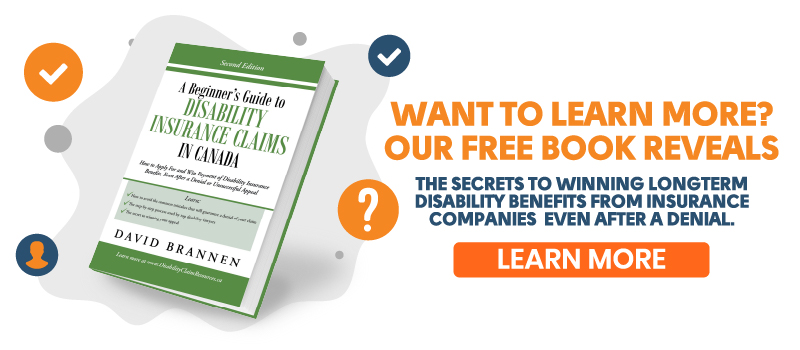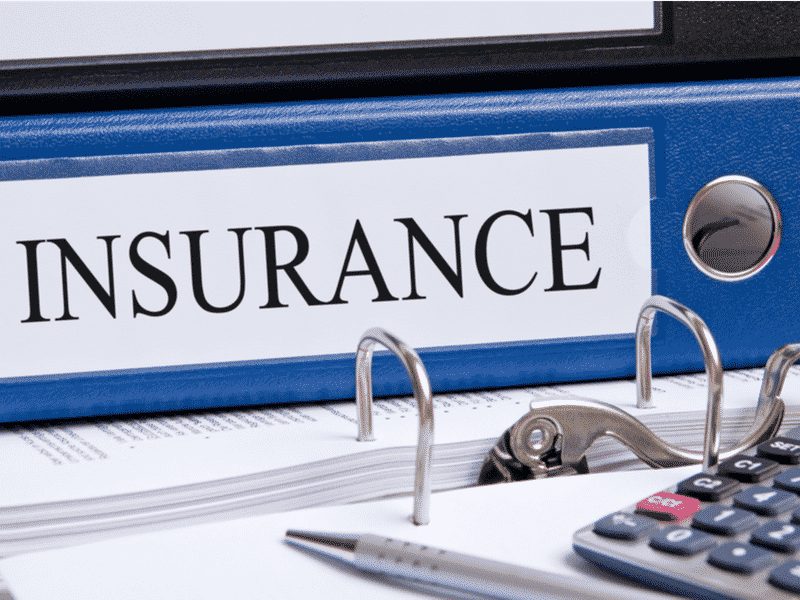If you’re looking for an overview of long-term disability in New Brunswick, then you’re in the right place. In this article, I’ll review how long-term disability works in New Brunswick, compare the different programs and benefits you can get, and provide you with a step-by-step process on how to apply.
Once you’ve read this article, you should know all about the benefits you can get and how to apply for them.
What is Long-Term Disability in New Brunswick?
Long-term disability can refer to a few things. In most cases, it’s used to describe an illness or injury that prevents you from working for a prolonged period of time. You must be off work for 17 weeks for your disability to be considered “long-term.” Short-term disability, on the other hand, is usually 17 weeks or less.
Long-term disability can also refer to different disability benefits programs. In New Brunswick, you can get long-term disability through individual and group insurance policies and provincial and federal programs.
Disability insurance is the most common type of long-term disability benefit in New Brunswick. This benefit provides comprehensive financial protection to those struggling with illness, injury, or some other type of long-term challenge that prevents them from working. Long-term disability insurance in Canada typically covers between 60% and 70% of your usual income.
To learn more about long-term disability, check out our Ultimate Guide to Long-term Disability in Canada.
Long-Term Disability in New Brunswick
New Brunswick has the second-highest percentage of people with disabling conditions in Canada, at around 23% of the population in 2017. Common disabilities include those that relate to:
- Pain
- Mental health
- Flexibility
- Mobility
Furthermore, new research indicates that the number of people with disabling conditions in the province is actually growing. According to the 2020 edition of the NBHC Primary Health Survey, as many as 25.1% of the population have some type of disability, including chronic health conditions lasting for at least six months, pain-related disabilities, or mobility difficulties. These increases may be related to the presence of long Covid.
The most common disabilities in New Brunswick
In New Brunswick, the most common disabilities include pain-related disabilities (63% of those with disabilities) and mental health disabilities (43% of those with disabilities). Other common conditions may include those related to flexibility and mobility, which occur in New Brunswick at slightly higher rates compared to the rest of the Canadian population.
Employment among disabled populations in New Brunswick
Unemployment disproportionately impacts the disabled population in New Brunswick.
According to the 2016 Census, only 55.4% of people with disabilities in the New Brunswick population were employed, compared to 76.5% of persons without disabilities.
Unemployment affects certain disabilities more than others. For instance, only 22.8% of New Brunswick residents with developmental disorders are employed. Similarly, only 33.7% of those with memory-related disabilities remain part of the labour force. On the other hand, people with hearing and seeing-related disabilities have much higher overall employment rates, at 58% and 56.3%, respectively.
Types of Long-Term Disability Benefits in New Brunswick
There are many types of long-term disability benefits in New Brunswick that can help people who have previously been members of the workforce but who find that an illness, condition, or suddenly-arising disability makes it impossible for them to continue to work. You can take a look at these long-term disability benefits and see if you are eligible for any of them.
Long-term disability insurance in New Brunswick
Long-term disability insurance is a common benefit in New Brunswick. To be eligible, you must be covered under an insurance policy with long-term disability benefits. In most cases, you are covered under your work’s group insurance policy. But you might have a private, individual long-term disability policy from an insurance broker.
If you have group benefits, check to see if they include long-term disability benefits. If you are self-employed, then you may have a long-term disability policy from a broker. You can find out if you have long-term disability benefits by asking the broker who sold it to you or by reviewing your policy.
CPP Disability in New Brunswick
CPP disability is a federal program that provides disability benefits to people who have a severe, prolonged disability that prevents them from doing substantially gainful work.
In order to qualify for CPP disability benefits, you need to make less than $17,000 per year. You also need to have worked previously and paid into the Canadian Pension Plan through your payroll taxes. CPP payments generally pay up to $1,457 per month and last until you reach age 65.
WorkSafeNB
WorkSafeNB provides monthly benefits to workers that were injured on the job. To be eligible for workers’ compensation payments, you must work for an employer insured under WorkSafeNB and experience a work-related injury or illness. Once approved, the program covers the cost of the health care services and supplies that are necessary to treat your injury and help you return to work. This includes:
- Paying for medical therapies and hospital fees
- A direct-pay prescription drug program that helps pay for prescriptions
- Income benefits that include up to 85% of your take-home pay while recovering from serious workplace injuries
- Any personal care needs or travel expenses associated with medical care during your recovery
You may be eligible to receive vocational rehabilitation services if you suffer from a permanent disability because of a workplace injury. This service will help you find ways to get back to work. You may also have grounds for an impairment award that will provide you with compensation for the permanent loss of your ability to work.
Disability Support Program
The New Brunswick government administers a disability support program designed to provide financial coverage for specific disability-related costs in New Brunswick. While Canada has a robust public health program, there are some benefits that may not be covered by that program. The disability support program can help cover the cost of home support workers, respite care, residential facility services for supervision, transportation support, and assistive devices.
In order to qualify for the disability support program in New Brunswick, you must be a New Brunswick resident between 19 and 64 years old with a long-term disability. The disability support program also requires that you have a disability where community involvement, specialty benefits and other supports would help you live a better life.
Disability Tax Credit
The Disability Tax Credit is another disability benefit in New Brunswick. But unlike the other programs, it does not provide a monthly payment. Instead, it gives a refund on federal income taxes paid. So, to get benefits, you need to be paying taxes. Or, you need to be dependent on someone who does. In that case, however, the other person receives the benefit — not you.
If you have a child with a long-term disability, then you can qualify for the child disability benefit. With this benefit, you receive a monthly payment. To qualify, you must be eligible for the Canada Child Benefit. In addition, your child must meet the criteria for the disability tax credit.
How Much Does Long-Term Disability Pay in New Brunswick?
You may be wondering how much long-term disability pays in New Brunswick. While we can’t provide you with an exact number, this is what you can expect for each program.
| Type of Benefit | Amount Paid (2023) | How Long Paid |
|---|---|---|
| Group LTD Insurance | 60 to 70% of your wages | To age 65 |
| Private Insurance | A fixed monthly amount is stated in the policy. Amount varies. (e.g., 5,000 per month) | To age 65 or more |
| CPP Disability | $1,078.07 (Average) and $1,538.67 (Maximum) | To age 65 |
| WorkSafeNB | Typically 85% of your usual take-home pay | Age 65 |
How to Apply for Long-Term Disability in New Brunswick
If you have recently realized that you need to apply for long-term disability in New Brunswick, you may feel overwhelmed by all the requirements and forms you have to fill out. That is why we compiled a list of six simple steps to make the process easier for you.
1. Figure out what plan covers you
There are multiple long-term disability benefits and coverage options available in New Brunswick. In order to get the coverage you need, you must first determine what benefits you qualify for.
You can start this process by considering where your injury happened. For example, you should apply for WorkSafeNB if you get injured at work. Seek legal advice if you are unsure if your injury was work-related.
If you did not suffer a workplace injury or illness, you should check to see if you have group benefits through your employer. If so, you should find out if you have long-term disability coverage under the plan.
Another possibility is you may have an individual disability insurance policy. You would have bought this directly from an insurance company. If you think this may be the case, contact your insurance broker or find a copy of your policy.
However, if none of these options apply to you, check to see if you qualify for CPP disability. Try to remember if you paid into CPP. This would include receiving a paycheque with payroll deductions. If you paid into CPP at least four of the last six years leading up to when you stopped working, you would have coverage.
You may also be eligible for the disability tax credit or the New Brunswick Disability support program.
2. Get support from your doctor
It is nearly impossible to win disability benefits without your doctor’s support. In most cases, you will need to have a certification from your doctor indicating the extent of your disability and why it prevents you from working. Your doctor may also need to lay out treatments you may have tried or your future prognosis.
If you do not have your doctor’s support, you may have a hard time getting your claim approved. Talk to your doctor about your inability to work. Discuss what treatment options might help improve your condition and whether they might enable you to return to work in the future.
3. Get and complete the required application forms
Most disability programs have three forms: one you fill out, one your doctor fills out, and one your employer fills out.
You are responsible for completing the notice of claim form. This is a critical form, so take your time filling it out. Keep in mind your responses should be complete and accurate. Send the notice of claim form to your benefits provider once you complete it.
You also need to get a medical report from your doctor. All benefit plans require this. We recommend booking an appointment with your doctor, where you solely review this form. Your doctor will then fill out the form and give it back to you to send in yourself. Or they can send it directly to your provider.
With workers’ compensation and long-term disability insurance, you need an additional form from your employer. Your employer is responsible for submitting an employer’s report. However, you do not need to provide this form to your employer. It is a standard form, so they should have copies.
Make sure you take the time to fill out your application accurately and completely. You do not want to have your application rejected because you did not provide all the necessary information.
4. Write a cover letter and submit your application.
Your cover letter should be relatively short and concise. So, don’t overload it with unnecessary information. It should explain what documents are attached and highlight important details. A lawyer can help review your cover letter and give you more information about what you might want to include.
Keep in mind that once you submit your application, you may have to wait sometime before you are assigned a claim representative and start to move forward with your claim. It can take time to have your disability benefits approved.
5. Attend an interview with your claim representative
Once your application is submitted, your insurance provider will usually assign a claim representative to your case. Typically, the representative will ask to schedule an interview with you — usually over the phone. During the interview, they may ask specific questions about your disability or ask for additional medical information.
Your claim representative is responsible for deciding whether your claim is approved or denied, so you need to answer their questions carefully, thoughtfully, and thoroughly.
If you’re concerned about the questions a claim representative might ask, consider reviewing your answers ahead of time to ensure that you are prepared to provide the information the claim representative will need.
6. Wait for the decision
Once your interview is over, you may need to send additional medical information to your claim representative — should they ask. Make sure to cooperate with them and get them everything they need. After you have submitted all the required information, the waiting game begins.
We know waiting for the decision is often the hardest part of this process. However, try to keep a positive mindset. Even if your claim gets denied, you can always appeal the decision.
Hiring a Lawyer in New Brunswick
Many people can obtain long-term disability benefits without hiring a lawyer. However, in some cases seeking legal support is necessary.
If you are looking to hire a lawyer or advocate, you should do your research. It is best to hire a long-term disability lawyer or someone who is experienced with the process.
At Resolute Legal, we have successfully represented many people from New Brunswick in long-term disability claims. We have represented people at all claims stages, including applying for benefits, internal appeals, legal appeals, and lawsuits. If you’re dealing with an appeal, we can review your situation and offer suggestions to improve your chances of success. This is part of our free claim review.
Call us toll-free today at (888) 732-0470 or book a free consultation.
Get Your Free Book



